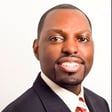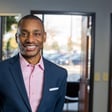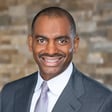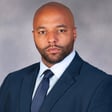
Macro Social Work | Career Coaching feat. Marthea Pitts, MSW
Today's Guest is Marthea Pitts, MSW, a 3x award-winning workforce development career counselor and macro-focused (program design and advocacy) social worker. Her commitment to challenging the status quo of economic development through career and education pathway design birthed The MSW Coach™.
It is her journeys as a community servant that built her foundation for success. She has served as a social worker enriching young mothers' lives, and as a community advocate fighting for the fair distribution of resources from government & corporate leadership.
Her captivating personality sees no limits and helps others design careers based off their values. For example, she's inspired and helped her clients find roles in environmental change, biotechnology, and high net worth philanthropy.
As the founder and lead consultant of The MSW Coach™, she and her team help individuals, education providers, community-serving organizations, and employers reimagine P-20+ career education design.
If you are considering a career change or would like to learn more, please visit her website, LinkedIn Profile and IG Page.
https://www.linkedin.com/in/themswcoach/
https://www.instagram.com/the_mswcoach/












